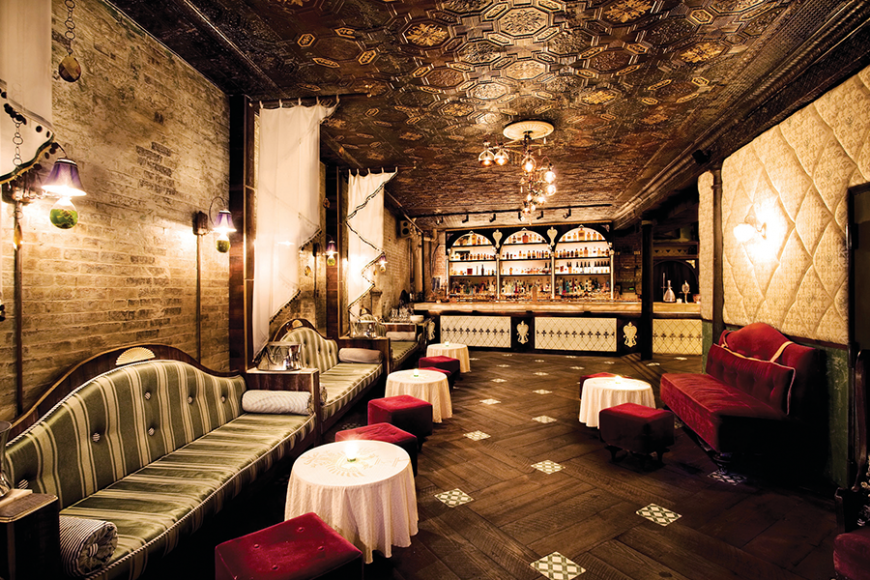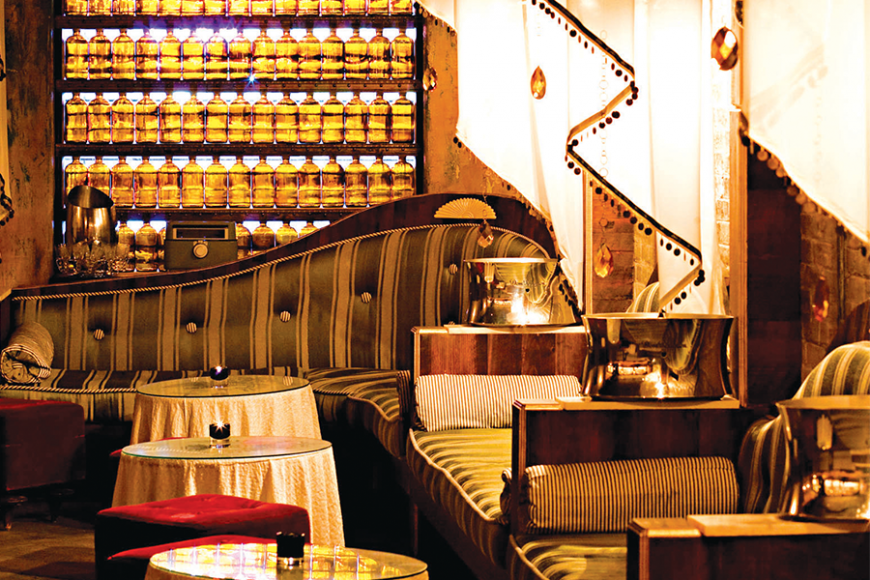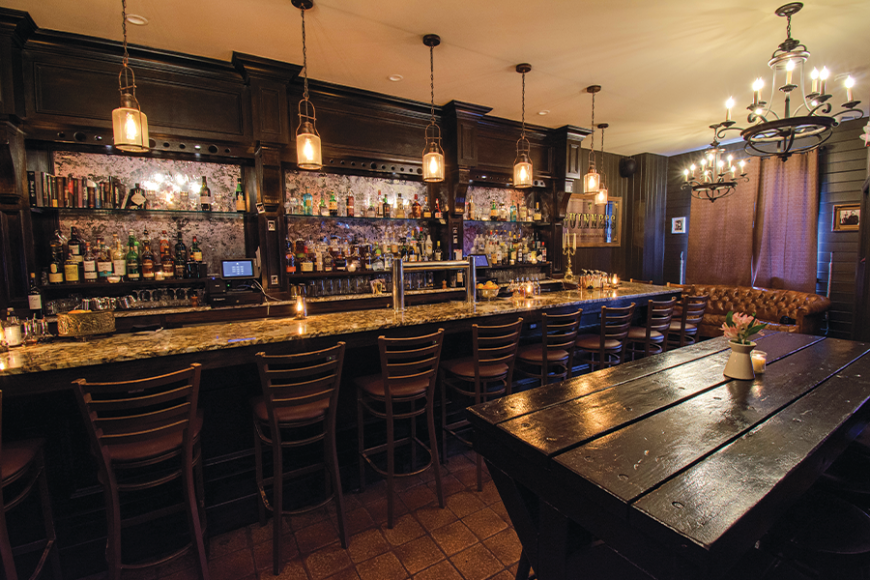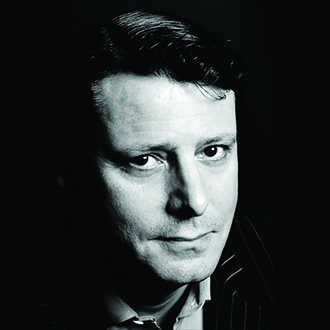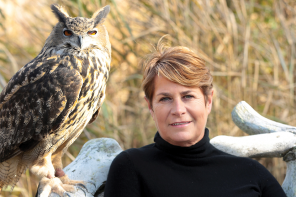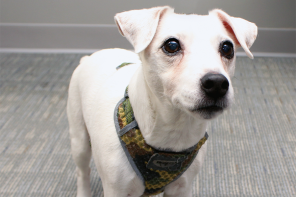Editor’s note: Since Jeremy filed this story, bars and restaurants in New York, Connecticut and New Jersey have been temporarily shut down due to COVID-19, except for takeout.
As some wily old rumpot has wisely observed, the modern iteration of the Prohibition-era speakeasy is as likely to be identified by what it doesn’t have as by what it does. Modern speakeasies — of course the very term is an oxymoron, since without Prohibition there can be no real speakeasies, only imitations — shouldn’t have signs. They shouldn’t have websites either and they definitely shouldn’t have publicists. By rights they are — at best — hidden bars because a speakeasy by any other name is simply not a speakeasy.
Speakeasies, as virtually every toddler must know, were illegal drinking dens that sprang up during the Prohibition era (1920-33), when alcohol could not be manufactured, transported or sold under the 18th Amendment to the U.S. Constitution, except under special circumstances, as in for religious use. (Connecticut and Rhode Island were the only two states that never ratified the amendment.)
Interestingly, however, alcohol could be consumed. And consumed it was, in thousands of homes that just happened to have it on hand, so it was grandfathered in, and in speakeasies (the name is said to derive from the secret password you would need to say to gain entry) across the northern part of the country, especially in New York City and Chicago. Speakeasies were responsible for the ascent of organized crime in the U.S. and by all rights they should have died a death a long time ago, with the end of Prohibition. But somehow, they have lingered on, or at least the memory of them has, like tendrils caught forever in our imagination, like the ex-con who pines for jail, or the hypercritical pol who longs to be naughty.
How else to explain the abiding appeal of speakeasies, those hugger-mugger dens of would-be iniquity, when nowadays we can drink freely more or less any place our heart and throat desires? (Except, of course, on Metro- North, where the last of the companionable bar cars on the New Haven line closed in 2014.) Something in our psyche, as Eartha Kitt memorably reminded us, makes us want to be evil. “I wanna wake up in the morning with that dark brown taste. I wanna see some dissipation in my face.”
This should not be a problem after a night at Apotheke, on 9 Doyers St. in Chinatown, marked only by a chemist’s sign outside the door. With menus marked ‘Prescriptions’ and bartenders by any other name in lab coats, a few Devil’s Playgrounds (gin, absinthe, dragonfruit and prickly pear) will leave your mouth pretty dry come the morning.
Even perfectly innocuous things like chocolate take on a much more interesting slant when they are perceived to be bad. That’s why we say chocolate is “sinful,” and why cream cakes are “naughty but nice.” One thing’s for certain though. Cocktails — preferably strong ones, mixed by inked and dissolute bartenders dressed head to toe in black — are infinitely more enjoyable when imbibed in subterranean spaces or in box rooms concealed behind bookcases.
Access to Please Don’t Tell, a brick-walled cocktail bar with Chesterfield booth seating, is through an old telephone booth at Crif Dogs, the upscale hotdog joint in Manhattan’s East Village. Open nightly until 2 a.m (3 a.m. on weekends), PDT breaks all the rules of speakeasy-hood, namely a published address, a democratic entry policy and — shame on it — spin-offs in Hong Kong and Barcelona. Yet somehow, this bar feels intrinsically right. As for those stuffed creatures looking down from their wall-mounted perches with disdain, do they know something we don’t?
Social media, of course, is the perfect tool to spread the word about speakeasies, although at the same time the medium that spreads the word is the double-edged sword. It destroys that which it seeks to protect. How many lions can you put in an empty cage?, the old schoolboy joke used to run. Just one, is the answer — because after that, the cage isn’t empty. That’s the trouble with speakeasies: They are utterly self-defeating. The moment the secret’s out, by definition they are not secret any more.
Still, “A” for effort goes to bars like Angel’s Share, itself a “secret” spin-off of a secret that had become too widely shared. Angel’s Share Mark II finds itself (as the French would say — how les Français adore a reflexive verb) above a Japanese restaurant, at 14 Stuyvesant St. in the East Village and prides itself on classic cocktails, along with a bumper collection of Japanese whiskeys, many of them hard to find if not downright rare.
Meanwhile at Banzarbar, a cocktail bar accessed through a restaurant at the end of a once sleazy alley, but where you must still wait your turn to be escorted to the small bar upstairs, you can pay tribute to the Irish explorer Ernest Shackleton. But now that the bar is an open secret, the exploratory factor is as much about discovering the cocktail list — a Fated Peel, for instance, with mezcal, amaro and white vermouth — as it is about locating the actual bar, now that the secret’s well out. (Just head to Freeman’s restaurant.)
Westchester County, meanwhile, has a new speakeasy of its own, The Blind Pig of Westchester, located (shh) at 174 Martine Ave. in White Plains. True, some speakeasy prerequisites are missing — no secret entrance, for one thing, and the thumping music is hardly an ambient vibe. But overall the Pig’s heart is in the right place. Opened by two former bartenders of the Brazen Fox, they mix exceptionally strong cocktails with risqué names, like the Well Slapped Arse and Purple Panties, and serve customers until 4 a.m., which is a dangerous time of the morning.
I wanna be horrid, I wanna drink booze / And whatever I’ve got, I am eager to lose.
While your boss or your partner might not appreciate these antics, Eartha would definitely have approved.

